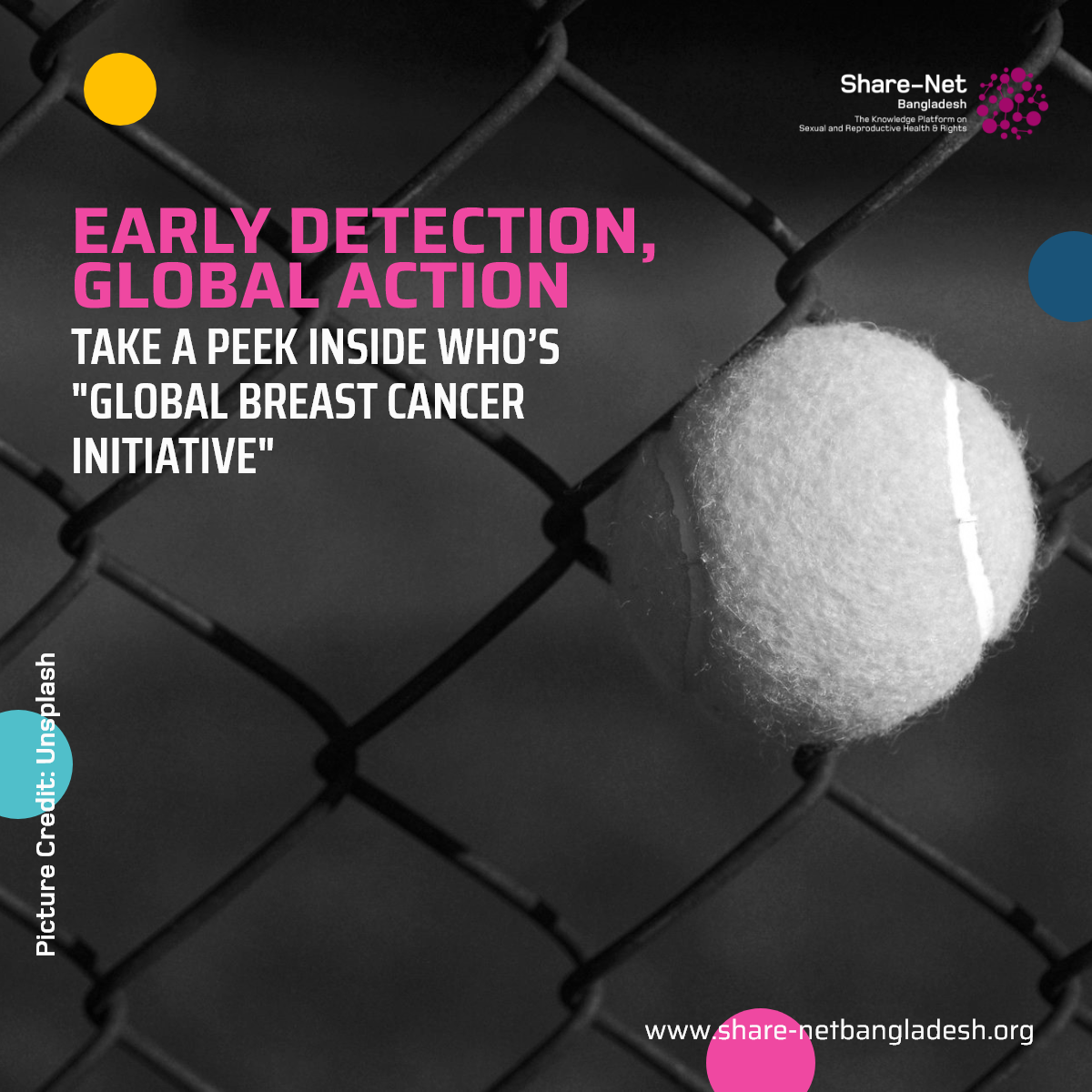Early Detection, Global Action: Take a peek inside WHO’s “Global Breast Cancer Initiative”
Each October, Breast Cancer Awareness Month (BCAM) aims to bring attention to these objectives, emphasising the urgent need for early detection, thorough treatment, and holistic support systems for patients, particularly those in resource-constrained settings.
The World Health Organisation (WHO) has taken significant steps to combat these statistics, launching the Global Breast Cancer Initiative (GBCI) in 2021. With a goal to reduce breast cancer deaths by 2.5% annually until 2040, WHO hopes to save 2.5 million lives through a focus on three key areas: health promotion for early detection, timely diagnosis, and comprehensive breast cancer management.
Breast cancer remains the most common cancer globally, with 2.3 million new cases diagnosed every year, accounting for one in eight cancer cases across both sexes. For women, breast cancer makes up a quarter of all cancer diagnoses. Tragically, about 70% of breast cancer deaths occur in resource-limited settings, where barriers in health systems and low awareness hinder early detection and timely treatment. In many of these low-resource regions, breast cancer also impacts a younger demographic, increasing premature mortality and leaving maternal orphans.
BCAM’s objectives go beyond simply spreading awareness; it aims to foster behavior change. Advocacy and communication strategies target increased breast cancer screening and early diagnosis uptake, particularly in countries with limited resources. The month-long observance also acts as a platform for sharing knowledge, forging partnerships, and strengthening collaborative efforts to improve breast cancer care on a global scale. Emphasising support for WHO’s Global Breast Cancer Initiative, BCAM encourages nations to focus on reducing disparities in access to care, promoting early detection, and expanding patient-centered support.
Addressing the issue through the lens of Sexual and Reproductive Health and Rights (SRHR) reveals deeper challenges that women in low-income regions face. Health systems in these areas often lack adequate resources for cancer screening or have limited public awareness of cancer risks and symptoms. In many cases, women are diagnosed at later stages when treatment options become limited, resulting in poorer health outcomes. Social stigma, lack of information, and limited reproductive health services create additional obstacles for women seeking early diagnosis and care. These barriers align with broader SRHR issues, as access to comprehensive sexual and reproductive health services is key to ensuring that women can maintain their health and rights at every life stage.
Patient-centered care is crucial in addressing breast cancer from an SRHR perspective. This approach recognises that comprehensive cancer care requires more than just medical treatment; it includes emotional, psychological, and social support through patient navigation systems. These systems can provide the guidance patients need, helping them navigate complex healthcare systems and minimising the social and economic burdens of treatment. A focus on patient-centered care is essential to overcome the gender and socioeconomic disparities that impact access to healthcare in resource-poor settings, where even a basic cancer diagnosis can devastate families and communities.
Despite these challenges, BCAM’s initiatives inspire hope and resilience in the fight against breast cancer. The month serves as a reminder that no one should have to face cancer alone, advocating for a future where early detection, effective treatment, and supportive care are accessible to all. Increased awareness, robust advocacy, and strengthened partnerships are essential for making strides toward this goal, ensuring that breast cancer is managed with dignity, compassion, and comprehensive support.
Through global collaboration and a commitment to SRHR values, the vision for a future with accessible, equitable breast cancer care can become a reality, ultimately saving lives and fostering hope in communities worldwide.
Source: The Daily Star
Picture Credit: Ben Hershey/Unsplash


